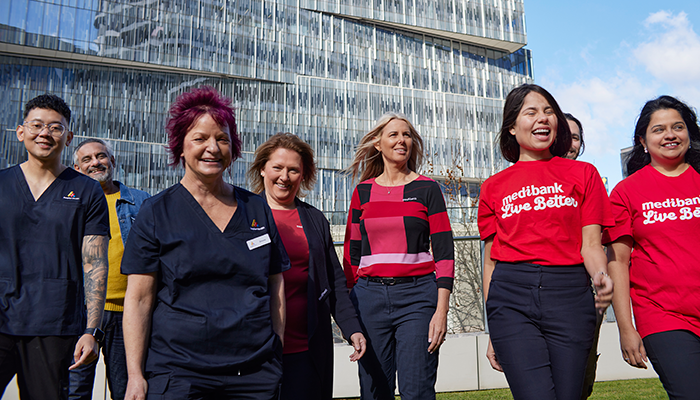Macquarie University and Medibank Trial Shows Stable Productivity and Improved Employee Health in Four-Day Work Week
The Health and Wellbeing Research Unit (HoWRU) of Macquarie University’s Business School partnered with Medibank to design and conduct the landmark trial, which launched in October with 250 Medibank employees.
It is based on the 100:80:100 model, whereby employees maintain 100 per cent of their pay, reduce their working hours to 80 per cent, and maintain 100 per cent productivity.
The trial and its impact are the subject of extensive research by HoWRU, which has so far found that participating Medibank employees are more satisfied and motivated in the workplace. Meanwhile, productivity is unchanged and participants’ health has improved.
Director of HoWRU, Professor Rebecca Mitchell, says that while more analysis is required, the early results are extremely promising.
“The midpoint survey unveiled substantial improvements across a spectrum of metrics related to employee attitudes, behaviours and health outcomes and productivity remained stable, highlighting the positive impact of the four-day working week experiment at Medibank,” she says.
“These findings affirm the transformative potential of the four-day working week experiment in fostering a healthier, more engaged and more resilient workforce. The substantial reductions in job stress, turnover intentions and work-to-family conflict, alongside improvements in physical health and workplace support, position Medibank as a leader in innovative work arrangements.”
Midpoint survey highlights include:
- Stable productivity
While participants have reduced their work hours, business metrics and individual performance have remained stable, meaning employees have been supported to work more efficiently.
- Increasing uptake of full “gift” day each week
Around two-thirds of participants have taken the full available day off (referred to as the “gift” day) each week. Last month, 80 per cent worked two hours or less on their
fifth day. This means that over time, people are changing traditional ways of working and reducing low-value work, which is creating greater capacity in their roles.
- Increased employee engagement
Compared to the start of the trial, participants are feeling more satisfied (4.9 per cent increase) and more motivated (3.1 per cent increase) at work. Engagement has also increased and participants noted a stronger sense of meaning from their workplace contributions (7.9 per cent increase).
There has also been a significant decline in intentions to leave and very little turnover among the trial group. Among frontline workers involved in the experiment, there has been a significant reduction in the uptake of sick leave and carers leave. In fact, unplanned absences have decreased by two thirds and sit well below the industry average.
- Improved health and wellbeing
Participants have reported feeling an improvement in their overall health (13 per cent increase), while there has been a 17.6 per cent decrease in the frequency of unhealthy eating, an 18.6 per cent decrease in sleep disturbances and a 20 per cent increase in mild exercise.
- Greater connection
Significantly, tension between family and work responsibilities has decreased for trial participants by 29.6 per cent. Moreover, participants are better able to detach from work outside work hours (10.5 per cent increase), feel more resilient (6.4 per cent increase), have stronger connections to people outside work (4.8 per cent increase) and experience less job-related stress (9.6 per cent decrease).
Medibank Group Lead People, Spaces & Sustainability, Kylie Bishop, says: “Our hypothesis is that by changing our ways of working and reducing unproductive and low-value work, we can create capacity for people to do things that bring them joy. And as a result, they will happier and healthier, and absenteeism and employee retention will improve.
“What these results show us is that we’re on the right track. We’re only halfway through the initial pilot, and there is still a lot to learn, but we’re showing that we can achieve our business objectives and see positive shifts in the health and wellbeing of our people.”
As the trial continues, further analysis will fully capture the benefits of the four-day working week.
Deputy Director of HoWRU, Associate Professor Jun Gu, says: “The ongoing analysis will further refine our understanding of the long-term impacts of the four-day working week experiment, setting new benchmarks for excellence in corporate health and wellbeing initiatives.
“This additional analysis is crucial as it allows us to rule out alternative explanations of these midpoint results and establish causality.”
Trial participants and the employee control group will complete their final survey this month, with overall results slated for release in September. Survey outcomes, combined with insights gathered from fortnightly reviews and other key business metrics, will be evaluated by HoWRU to inform Medibank’s decisions for the next phase of the experiment.
The four-day work week trial is the chief initiative of a three-year partnership between Medibank and HoWRU, which is aimed at reinventing the workplace. Through the partnership, HoWRU’s rigorous measurement framework will uncover evidence of cultural change at Medibank as it strives to create the healthiest workplace in Australia.

